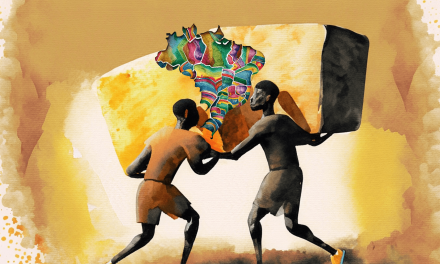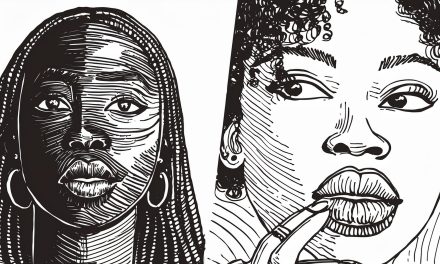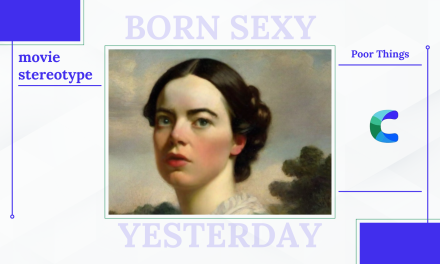The Intersection of Machismo and Racism in the Videogame World
The field of technology, particularly the universe of video games, is witnessing a growing presence of women. However, given that this domain is predominantly controlled by white men, the need arises to protect against the multiple forms of violence that pervade the online world. When we consider black women, this protection must go beyond misogyny and machismo to shield them from the scourge of racism.
The struggle of women in cyberactivism is by no means a recent phenomenon. Let’s go back to 1978 in Los Angeles, when a regional showdown of the pioneering shooting game, Space Invaders, took place. Stealing the limelight from her competitors was Rebecca Heineman, a player who amassed a staggering 88,000 points, double that of her nearest rival. The question is: have we made enough progress since then?
The score was so astronomical that, to avoid demoralizing other competitors, the tournament organizers kept it secret until the end. Upon revealing her score, she casually asked,“Is that a good score?“. This win etched Rebecca’s name in history as the first person to win an eSports championship in the United States.
The importance of awarding such a prestigious title to a transgender woman cannot be underestimated. He emphasized the value of the female presence in video games. Through her victory, Rebecca Heineman blazed a trail for generations of women players who followed, contributing to the creation of more than 200 games.
However, despite the visibility gained, the path of women players is far from conventional. The obstacles are still numerous, and the lack of encouragement and representation continues to discourage those who have chosen to immerse themselves in this highly exclusive niche.
“The difficulties range from combating narratives that present women as characters, stereotyped protagonists, to the search for the construction of a safe environment, far from harassment, insults and discrimination,” explains Gabriela Gonçalves, audiovisual training coordinator of the project “Empowerment and Technology: Young Black Women in Audiovisual”.
Cyberactivism is Necessary against Racism
Research in the United Kingdom revealed alarming data on the mental health of female gamers. Sky Broadband interviewed 4,000 women to find out how they feel when playing online games and found that 1,960 (49%) have experienced insults or harassment while playing or streaming video game games on the Internet. In the case of women between 18 and 24 years of age, the percentage rises to 75% (3,000).
In relation to the female players who claimed to have suffered mistreatment, it was found that 1,568 (80%) received messages and comments of a sexual nature and that 30% – which represents a number of 588 women – were victims of content that advocated violence. Another alarming statistic is that one in 10 players has considered suicide after insults.
The research also revealed players’ views on how online games can become an unpleasant environment for women. Slightly more than half of the participants (51%) responded that they had already witnessed a streamer being harassed on the web.
“When technology starts to become more digital, cyber activism becomes necessary. There is an urgency for black women to see themselves as part of cyberactivism to think about their safety and ways of acting when these technological devices become very present in our lives,” highlights Olabi’s co-executive director, Silvana Bahia.
Silvana explains that, especially for those whose work is impacted by communication – as is the case of black women gamers – a “summons” arises, albeit involuntary, for cyberactivism. The advent of and people’s access to smartphones in mid-2013 mark this period of openness, she says.
Understanding the Challenges Facing Black Women in the Video Game Community
The world of video games, an intricate network that transcends borders, is an incredible platform for escapism, creativity and social connection. However, beneath their bright appearances lurk the shadows of inequality, with racism and machismo as protagonists. This problem is particularly significant for black women, who find themselves at the intersection of these oppressive forces.
Understanding the challenges faced by Black women in the video game community requires an exploration into the deep layers of bias that often manifest themselves in a variety of ways. From racial slurs and misogynistic comments to lack of representation in games, these problems create an oppressive environment that is far from the promise of fun and camaraderie that video games ostensibly offer.
The Discomfort of Racist and Sexist Insults
Online video games are a double-edged sword. While they provide a platform for interaction, they also allow anonymous players to hurl racist and gendered insults without fear of immediate consequences. A significant number of black female players face these insults, with their playing experiences often marked by racial slurs, sexist comments and even threats. Isn’t it ironic that an activity intended for leisure and entertainment can quickly become a platform for hatred?
Racism and Racial Discrimination: The Lack of Black Women at the Games
Representation in the media has been a persistent problem, and the video game industry is no exception. It is rare to find games with strong black female characters as protagonists. The lack of representation reinforces the message that these
spaces are not intended for black women, and inadvertently perpetuates harmful stereotypes. What does this say about our society, where a significant portion of our population is effectively invisible in one of the most popular forms of entertainment?
The Racist Stigma Associated with Female Players
Sexism in video games is not a new phenomenon. Female players have long been stigmatized, often considered less competent than their male counterparts, regardless of their skill level or experience. This bias is even more profound for black women, who are often subject to stereotypical assumptions about their abilities and interests. Can we really claim to be a society that values fairness and equality when our digital spaces reflect the very systems of oppression we seek to dismantle? It is time to confront the intersection of sexism and racism in the world of video games, and this requires the active participation of Black women in cyber activism. While the video game community can be a breeding ground for discrimination, it can also be a platform for change, a space where black women can assert their presence, challenge the status quo and inspire a more inclusive culture.
Dismantling Oppressive Structures: A Call to Action for Players and Developers
Change must also come from the top. There is an urgent need for stricter regulations and policies within the video game industry to prevent harassment and discrimination. Advocacy for black women in video games must include a push for more inclusive policies, such as stricter penalty systems for hate speech and the inclusion of diverse voices in game development and decision-making processes.
Proactive Measures by Game Developers: Forging a More Inclusive and Diverse Environment
As the video game industry has grown over the years, it still remains a space where barriers persist and intersectional discrimination flourishes. Machismo and racism, especially directed at black women, continue to affect this sector. However, in the face of these challenges, some game developers are taking proactive steps to promote inclusivity and diversity.
These developers recognize the potential of games as a platform for social change. In fact, they embrace the responsibility of creating inclusive digital spaces. They understand that the video game industry is not just about entertainment, but is also a reflection of the values and attitudes of our society. By promoting diversity and inclusion in their games, they send a powerful message against sexism and racism, encouraging a more respectful and accepting gaming community.
How to Protect Yourself
Despite representing 51.5% of Brazilian players in 2022, women continue to be subjected to harassment and derogatory comments during games. Fear often keeps them away from games perceived as “toxic” or forces them to devise their own safety mechanisms.
The fear of being reprimanded for not fully understanding the mechanics of a game often discourages player Joyce Pereira from even starting many online games.
“Would I be more inclined to take on these challenges if I had a support team of women to share my experiences? A ‘quilombo’ of games, perhaps?” reflects Pereira.
An alarming statistic was revealed in a 2021 study conducted by Reach3 Insights in collaboration with Lenovo: 59% of female gamers hide their gender during games to avoid harassment.
Silvana Bahia highlights the strategies that black women can employ to protect themselves in the virtual world, especially in the world of video games, allowing them to pursue their passion without retaliation.
One of the strategies it cites is the“Learning Guide – Cyberactivism and Digital Care,” a resource conceived by PretaLab in collaboration with Black Women Decide.
Redefining Video Game Culture: How We Can Make the Industry More Inclusive and Diverse
The video game industry is perceived as a white male-dominated field, essentially marginalizing black women. Inclusion and diversity do not happen on their own; they require conscious effort, understanding and, most importantly, representation. Black women have been at the intersection of machismo and racism, navigating through a sea of prejudice, stereotypes and discrimination. So how can we all contribute to making the video game industry more inclusive and diverse?
The Power of Representation
Representation matters. When black women see themselves in games, not as hypersexualized objects or secondary characters, but as strong, independent heroines, it can have a profound impact. It breaks the narrow confines of stereotypes and opens the way to diversity. But who will create these characters?
Promoting Diversity in Game Development
People create what they know. Therefore, the more diverse the team of game developers, the more diverse the characters and plots will be. But how can we encourage more black women to become game developers?
- Education: Early exposure to computer science and game development can spark interest and passion.
- Mentoring: Successful black female game developers can mentor and inspire the next generation.
- Opportunities: Create more scholarship programs and job opportunities for black women in the video game industry.
- Cyberactivism: A Tool for Change
Once black women are part of the gaming community, it is imperative that they do not face the same macism and racism. This is where cyberactivism comes into play. It is a tool in the hands of the oppressed, a voice of resistance against discrimination. But how does it work?
“Cyberactivism is not just about raising awareness online, but also translating it into action in the real world.”
Black female players can use their platforms to point out instances of bias and discrimination, creating a ripple effect that could lead to industry-wide change. They can also form alliances with other marginalized groups within the gaming community to amplify their voice and influence.
It is not only the responsibility of black women to fight against sexism and racism in the video game industry, but rather a collective responsibility that we all share. By considering these steps, we can redefine video game culture and create a more inclusive and diverse space for all.






